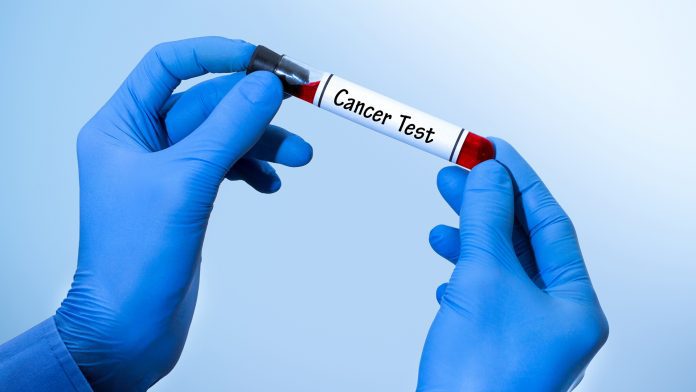
The NHS is conducting trials for a groundbreaking lung cancer blood test to detect the disease at its earliest stages.
This innovative lung cancer blood test, set to be offered to 10,000 patients by March next year, is known as a circulating tumour DNA (ctDNA) test.
The current initiative follows a successful pilot involving more than 2,000 patients from 80 NHS trusts across England.
The NHS Genomic Medicine Service, in collaboration with commercial partners Guardant Health and Roche, spearheads the initiative.
The liquid biopsy technology, developed jointly, is now utilised by the Royal Marsden NHS Foundation Trust under the Marsden360 service.
Peter Johnson, National Clinical Director for Cancer at NHS England, said: “This new blood test that we have been piloting has the potential to help many more cancer patients access targeted treatments more rapidly on the NHS, to make personalised treatments available sooner, and ensure that people with cancer have the best possible chance of survival.
“The NHS has shown it can lead the way in innovation in cancer diagnosis and treatment, and this pilot is another example of our commitment to getting patients cutting-edge treatments and therapies to improve outcomes, giving people facing lung cancer more precious time with loved ones.”
Addressing the UK’s lung cancer burden
Lung cancer ranks among the most prevalent cancers, with approximately 34,000 diagnoses annually in England alone. Non-small-cell lung cancer constitutes the majority of cases, making early detection crucial for improving patient outcomes.
Traditionally, lung cancer diagnosis relies on tissue biopsies followed by genomic testing. However, this new blood test offers a faster alternative, potentially speeding up the process of confirming the diagnosis and initiating targeted treatments.
Detecting genetic variants through ctDNA test
The new lung cancer blood test works by identifying genetic variants in a tumour through a simple blood sample.
Patients with suspected lung cancer, based on CT scan results, will have their blood samples sent to a genomic laboratory for ctDNA testing. The results are expected back within approximately 14 days.
Cancerous tumours often release circulating tumour DNA into the bloodstream. The ctDNA blood test utilises this phenomenon to identify crucial genetic drivers of tumours, providing valuable insights into the nature of cancer and guiding treatment decisions.
Professor Sanjay Popat, co-clinical lead of the ctDNA pilot and a Consultant Medical Oncologist at The Royal Marsden NHS Foundation Trust, explained: “CtDNA liquid biopsies have the potential to transform cancer care for patients, from earlier diagnosis to prognosis and better management of treatments.
“It is fantastic that through collaborating with NHS England we can look to bring cutting-edge genomic testing to patients in the NHS, resulting in many patients receiving targeted treatments rather than standard chemotherapy.
“Our Marsden360 service, established in partnership with Guardant Health, also allows us to significantly increase our capacity for research using ctDNA testing, improving treatment options for patients across the UK”.
NHS advancements in cancer care
The NHS’s adoption of innovative cancer care technologies continues to evolve. Earlier this month, the service introduced a new immunotherapy for advanced endometrial cancer patients.
By integrating cutting-edge technology with healthcare infrastructure, the NHS aims to enhance cancer care, providing hope for earlier detection and improved treatment outcomes for patients across the nation.









